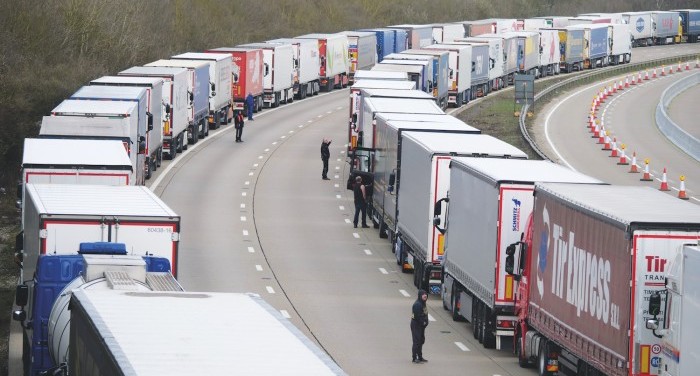The NPA has called for a ‘more proactive and decisive approach’ from Government to address a number of outstanding concerns for the pig sector surrounding EU Exit.
With the end of the Transition Period now less than two months away, the NPA is still seeking answers on a long list of critical questions relating to the industry’s ability to trade breeding pigs and pork products post-EU Exit.
The association continues to work closely with Defra on some of the issues, but, according to chief executive Zoe Davies, there is still a lack of understanding within the Department and across Government about the severity of the situation.
“While we are making progress in some areas, time is now running short and we need more urgency and engagement from across Government before it is simply too late,” she said.
“As things stand, on top of the growing disruption caused by COVID-19, the UK pig sector faces the very real prospects of being unable to continue the vitally important trade in breeding stock to the EU and of severe delays, added costs and reduced market access for our pork exports. The impact could be devastating.”
Dr Davies pointed out that in many cases, the issues will affect the industry whether or not we have a deal in place with the EU on January 1, 2021. The main areas of concern include:
- The inability to export any breeding stock due to a lack of necessary Border Control Posts (BCPs) at key EU seaports. Imports could also be affected from July.
- Delays at ports after January and lack of prioritisation for fresh food, jeopardising short shelf life product exports.
- A lack of veterinary resources to carry out all the additional checks required on animal and meat exports.
- A lack of clarity about new requirements and authorisations needed for hauliers transporting breeding pigs.
- A lack of clarity on the requirements for movements of product and live pigs between Great Britain and Northern Ireland.

Dr Davies added: “It is extremely frustrating. As an association and as an industry, we always try to be prepared and remain optimistic, and still believe there is time to resolve at least some of these issues and minimise the negative impacts the new trading arrangements will create.
“We will continue to strive to get solutions, but we need better engagement and answers from across Government and fast. Our message is that we are facing a very real threat to the viability of the UK pig sector and we must do all we can, collectively, to avoid serious disruption.”
The NPA’s concerns
In more detail, the specific areas of concern include:
- No EU Border Control Posts (BCPs) for live animal exports: BCPs will be needed to check everything exported after January 1. There are currently no BCPs at any seaports nearby that will accept live animals (this includes France, Belgium and the Netherlands). Unless that changes, we will be unable to export breeding stock to the EU, which will not only impact the viability of our breeding companies but have a knock-on impact on the productivity and biosecurity of the entire herd.
- Support with BCPs: Defra has left it to the industry to engage with EU ports to encourage them to register as BCPs and put in the required facilities. There has been no interest from the Government in helping us engage at either Commission or Member State level.
- No BCPs for live imports: There are no seaport BCPs in the UK at present either. Defra has pointed out that, as it is phasing in import checks, these won’t be needed until July. However, we will need to know well in advance what the exact requirements will be for testing and inspection, while any port operating as a BCP will require time to put the necessary infrastructure in place.
- Delays at ports: The extra bureaucracy and checks required could result in long queues at ports, particularly in Kent. Whilst they have prepared some plans for hold-ups, currently livestock and meat are not on the priority list for movement through Dover – which is completely unworkable.
- Veterinary resources: There will potentially be a requirement for 500% more certification checks on live animals and meat products. We are still waiting for an indication of whether or not the significant extra veterinary resource required can be met.
- Haulier concerns: Hauliers will require separate authorisations and qualifications in both the EU and UK. There is still a complete lack of clarity as to how companies will be able to register and hold multiple authorisations without adding huge cost.
- GB-NI movements: There is still a total lack of information on the movement of goods and animals from Great Britain to Northern Ireland on, for example, the level of checks, the potential for delays or detail on goods deemed ‘at risk’.
- Pork from ROI and processed in NI: We are concerned that meat from pigs coming from the Republic of Ireland (ROI) but processed in Northern Ireland can bear the NI origin mark and flow into GB.
- COVID concerns: We have seen no modelling from Defra on how COVID-19 outbreaks could impact on staffing levels at ports both on the UK and French sides – and what contingency plans are being put in place.




